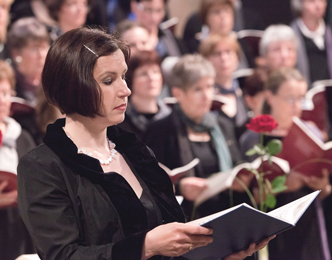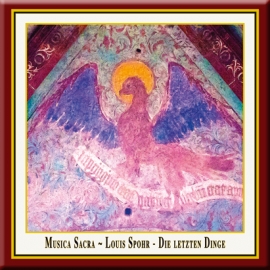Miriam Meyer

Soprano Vocals
The soprano Miriam Meyer was born in the German city of Osterode am Harz. After graduating from high-school, she started medical school in Hanover. In addition to that, she soon started studying vocal arts at the Hanover University of Music and Drama with W. Reimer. In 1997, she transferred to the University of Music in Lübeck as a student of Ulf Bästlein, where she received her diploma with distinction in spring 2002. She intensified her training by attending master classes by Renata Scotto, Irwin Gage, Charles Spencer, Kai Wessel, and Esther de Bros. Beside performances on the radio and on television Miriam Meyer gave numerous concerts, Lied recitals and oratorio performances throughout Germany and other European countries. At the Handel Festival in Halle in 2003, for example, Miriam Meyer's performance of the soprano solo in the oratorio "Messiah" with the Choeur des Musiciens du Louvre and the Lautten Compagney Berlin, conducted by Wolfgang Katschner, was a great success. At the Herrenchiemsee Festival of 2004, she made her debut as Susanna in "The Marriage of Figaro", conducted by Enoch zu Guttenberg. From 2002 to 2008, Miriam Meyer worked as a soloist at the Komische Oper Berlin with guest performances in Hong Kong, for example. In 2006 the soprano started cooperating very closely with Ton Koopman and the Amsterdam Baroque Orchestra.








